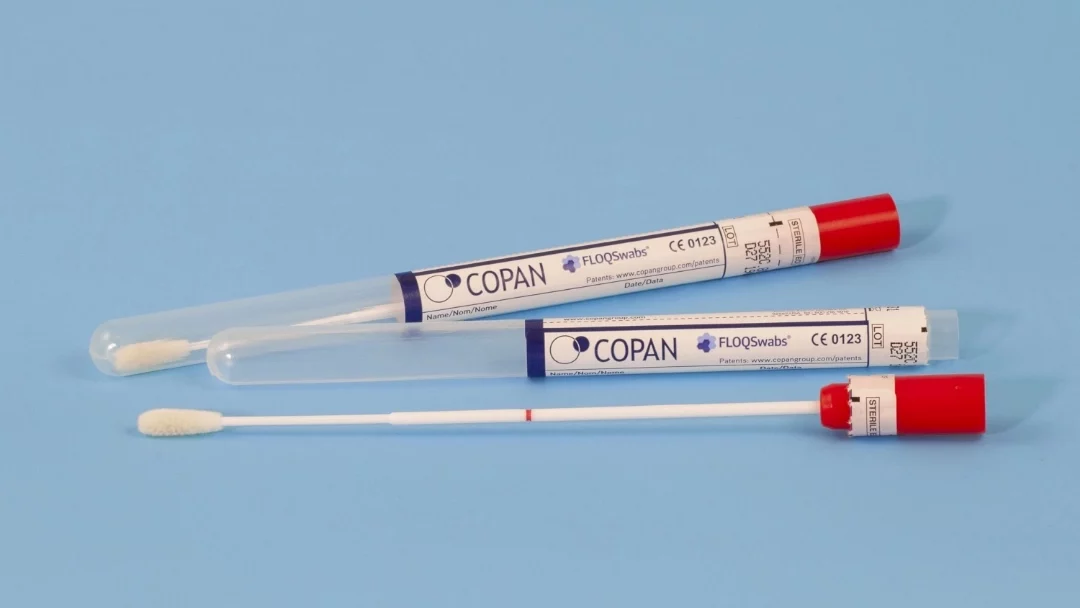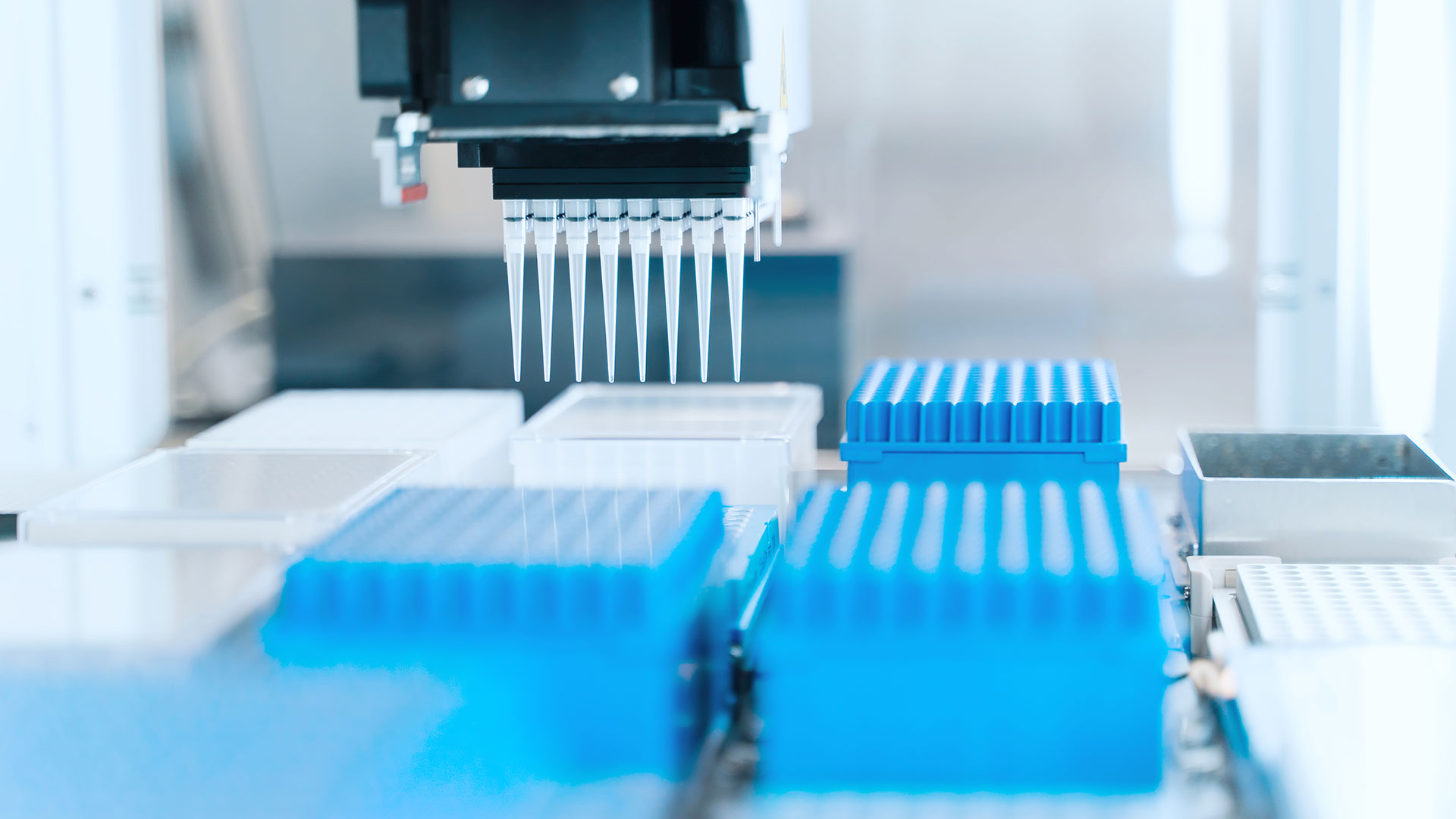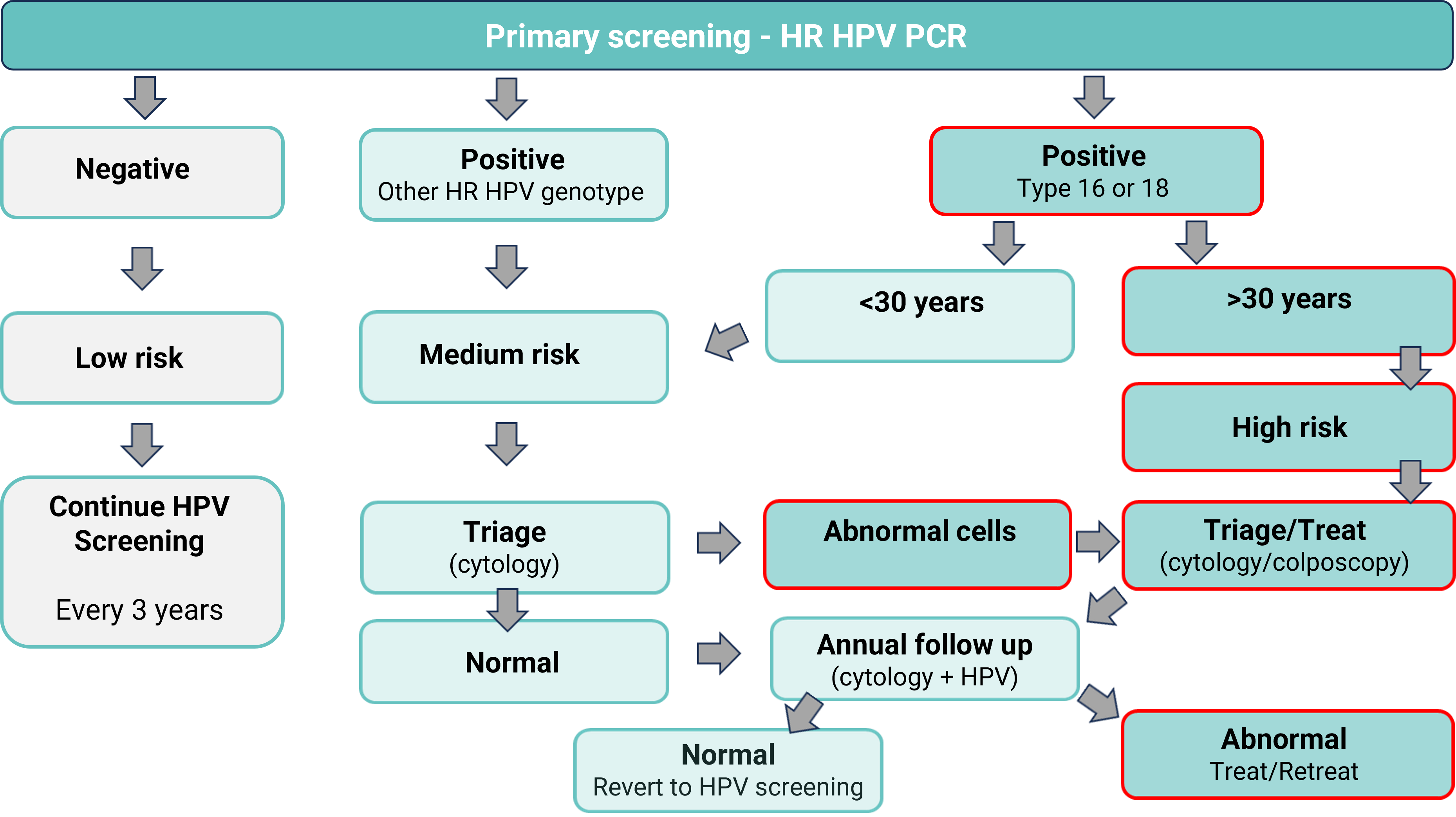Human Papillomavirus (HPV) is the major cause of cervical cancer in women. It is the most common sexually transmitted infection in the world and affects over 80% of women at some point during their lifetime. Most infections are temporary and disappear without any treatment. However, if the infection persists, it can lead to cell changes on the cervix which can become cervical pre-cancer and, ultimately, cervical cancer. Women with HPV do not develop any symptoms for a very long time and therefore do not know they have it. HPV screening at regular intervals dramatically reduces your risk of developing cervical cancer and preventing the cell changes occurring that can lead to cervical cancer. HPV PCR testing is recommended for both HPV vaccinated and unvaccinated women.
Aside from the obvious advantages of self-collection, HPV PCR is the recommended primary screening test to detect cervical pre-cancer and cancer, given that it is more sensitive than a cervical smear. Over 4 million eligible women in England have either never had cervical screening, or missed their last test according to NHS England in January 2023, either because of backlogs, or simply not wanting to attend an appointment. This home test kit enables you to sample yourself, and get results within a matter of days from ordering. It will identify the most common high risk HPV types known to cause cell changes that can result in cervical cancer, with specific identification of the most high risk types 16 and 18, which can require closer monitoring. Home testing removes the need to wait for, and attend, a clinic appointment. A positive test result does not mean that you necessarily have cancer, just a warning to monitor the cells more closely.

HPV PCR Testing Reduces your Risk of Cervical Cancer
All high-risk genotypes tested - 16, 18 + 14 others
Our HPV PCR screening test detects all high risk types known to cause cervical cancer from a simple swab test which you can do at home. No need to book an appointment and have a Practitioner take the sample for you. Get your results via email within 2 days of your sample reaching our lab.

Order online and we will send your HPV Screening Test Kit. It contains everything you need to take your own sample.

Return the sample in the pre-paid Tracked 24 packaging.

Viral DNA is extracted, amplified and analysed for the presence of 16 different high-risk HPV types.

Your HPV results will be emailed to you the SAME day or within 2 working days from sample receipt in the lab.
Your kit will include easy to follow instructions for use plus a barcoded tube containing a sterile swab for collecting your cervical sample. After sampling the swab is placed back in the tube, which you then put back into the prepaid postage outer box for sending back to the lab. Simple as that!
A) Barcoded tube containing sterile swab
B) Instructions For Use
C) HPV Screening Test Request Form
D) Postage prepaid return box


There are two possible outcomes. Positive or negative. A negative report means you are not at risk of developing cervical cancer. A positive report will tell you if it is type 16 or 18, or one of the other high-risk types. Other high-risk types are not typed specifically. This is because HPV 16 and 18 are the types known to cause over 70% of invasive cervical cancers and require closer monitoring.
Testing positive for a high-risk HPV does not mean that you have cervical cancer. The virus is highly likely to be cleared naturally by your body over time. Take your report to your Practitioner and they can advice on any further testing, or future testing intervals. For more information on the HPV Test see our FAQs and the factsheet below.
